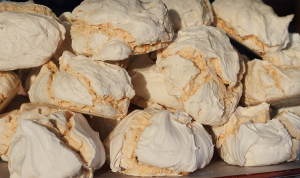
Many cultures across Africa hold a deep respect for traditional medicine, and fertility is no exception. For generations, indigenous healers have used various herbs and plants to support reproductive health in both men and women. While these practices are often intertwined with cultural beliefs and passed down through families, modern scientific research is starting to shed light on the potential benefits of certain African herbs, particularly when it comes to boosting fertility.
Understanding Traditional Practices
A lot of traditional African medicine relies on a holistic approach. It goes beyond simply treating symptoms; instead, it focuses on balancing the whole body in harmony with its environment. This might involve practices like herbal teas, dietary changes, or specific rituals that promote wellbeing and fertility. For instance, certain herbs are believed to have a calming effect, reducing stress which can often negatively affect the reproductive system.
These herbs are often used in conjunction with other traditional treatments like massage, acupuncture, or even spiritual practices. The combination of these methods aims to achieve harmony within the body and mind, ultimately benefiting fertility. It’s important to note that these practices aren’t a substitute for conventional medical care, but rather an intriguing avenue for exploring alongside established treatments.
Many cultures across Africa have their own unique approaches to fertility. For example, in some regions of West Africa, the herb Artemisia afra is known for its potential to balance hormones and enhance ovulation. In South Africa, ginger root is a popular choice due to its anti-inflammatory properties. These practices highlight the cultural significance and effectiveness of these traditional remedies.
Unpacking Proven Benefits
The scientific community is increasingly recognizing the promise of certain African herbs for supporting fertility. While research is still developing, here are some notable examples:
* **Ashwagandha:** This adaptogenic herb, commonly used in Ayurveda, has shown promising results in helping women with polycystic ovary syndrome (PCOS) by regulating hormone levels and reducing stress.
* **Fenugreek Seeds:** Fenugreek seeds have long been a staple in traditional medicine for improving hormonal balance. Research indicates that they might help regulate ovulation and boost testosterone production, potentially increasing the chances of conception.
* **Hibiscus Flower:** Hibiscus flowers are rich in Vitamin C and antioxidants, which may offer benefits for both men and women seeking fertility. Some studies suggest that hibiscus extract may improve sperm quality in men, while promoting healthy egg development in women.
Cautions & Considerations
Before incorporating any new herbs or supplements into your routine, especially when planning to conceive, it’s crucial to consult a healthcare professional. They can help assess your individual needs and potential interactions with existing medications or conditions you might have.
Here are some important considerations:
* **Herb Quality:** The quality of herbs matters! Choose high-quality, organic products from trusted sources. * **Dosage:** Always use herbs according to specific guidance, as incorrect dosages can be harmful. * **Pregnancy:** Some herbs may pose risks during pregnancy; it’s crucial to talk to your doctor if you are pregnant or planning to become pregnant.
Remember, there is no one-size-fits-all approach to fertility, and the journey towards a family can be complex. Be patient, stay informed, and prioritize communication with healthcare providers for personalized guidance throughout this life transition.
Embracing Traditional Wisdom
The traditional wisdom of African herb usage provides valuable insights into improving fertility health. From calming herbs to balancing hormones, these practices offer a unique perspective on how to nurture the body’s natural ability to conceive. As scientific research continues to deepen our understanding of these ancient remedies, it is crucial to approach them with curiosity and respect for their rich cultural heritage.
Remember, there’s no magic cure-all when it comes to fertility. But by exploring traditional methods alongside modern science, we can discover a more holistic path towards achieving your dreams of parenthood.


